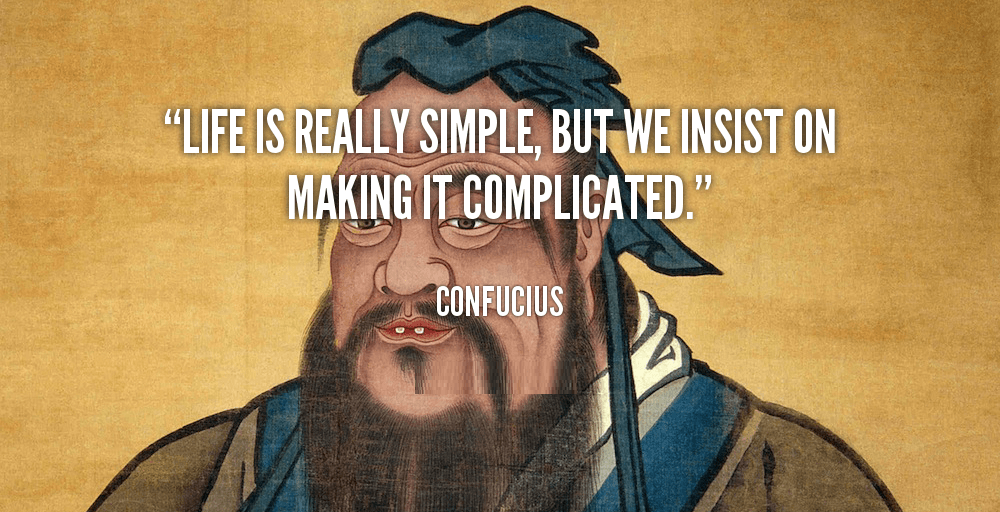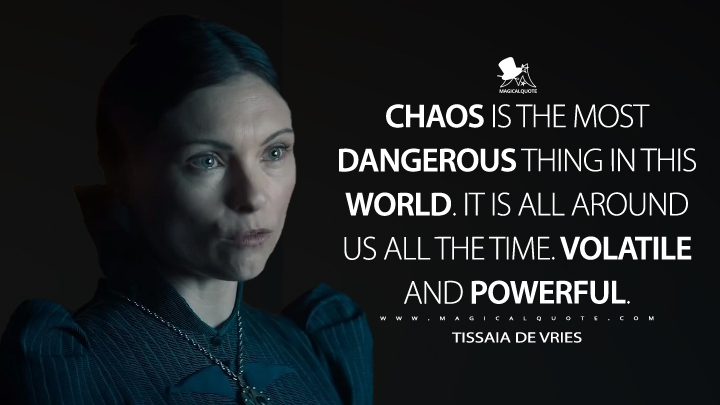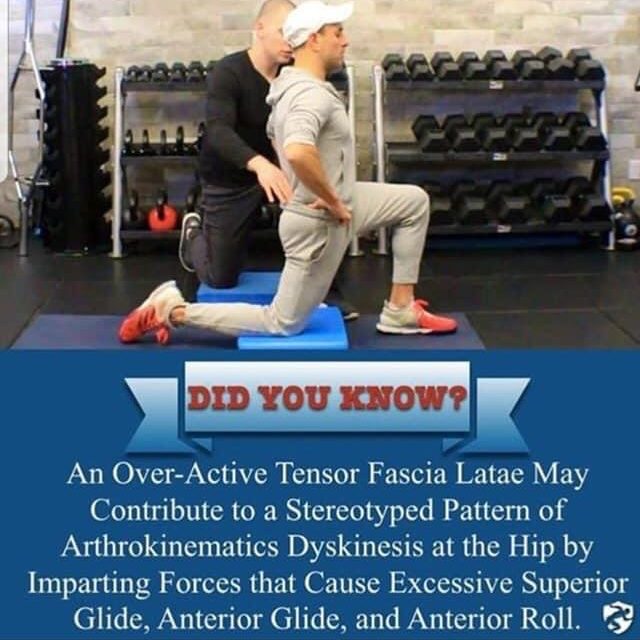Why Physios Hate Simplicity
Jul 19, 2020
I have been trying for many years to get myself and other physios, trainers and therapits comfortable with simplicity in our assessments and interventions. Unfortunately, I don't think I've been very successful as I constantly find myself confronted with many who overcomplicate what they do, how they do it, and why they do it.
Why so many physios are attracted to complex and complicated methods over simpler ones is ironically both complex and complicated, but it's mostly due to something called ‘complexity bias’ which is a trait that we all suffer from that gives undue credence and priority to complex ideas, concepts, and methods over simpler ones.
Complexity bias states that when faced with two competing theories, we are often more likely to choose the more complex one rather than the simpler one. As a result, when we are confronted by a problem, we tend to overlook or ignore simpler solutions and hunt for more complex difficult ones.

You Have A Bias Towards Complexity
Now if you don't believe me that you just love to make things more complicated for yourself, just try this little experiment out for me. All I want you to do is tell me what you think the next number in this sequence is...
3, 5, 7…
Now I bet most of you immediately thought of 9 as it's the very clear simple and obvious answer in a list of ascending odd numbers. However, I bet a few of you smarter cookies may have thought of 11, thinking this is the next number in a list of ascending prime numbers.
Well, both of these answers to this problem are correct, and they are simple and straightforward solutions to this problem. But there's an even simpler answer that I bet all of you overlooked that highlights our bias towards complexity.
The numbers 3, 5, and 7 are indeed ascending odd, and ascending prime numbers, but they are first and foremost simply just ascending numbers. Our natural inherent bias towards complexity and pattern recognition immediately overlooked the simpler answer of ascending numbers and saw the more complex solution of ascending odd or ascending prime numbers instead.
Although you are still correct and solved this problem by saying the numbers 9 or 11 as a solution, you would have not fully understood why you were correct or how you solved the problem. Our complexity bias can therefore not only cause us to make inaccurate or incomplete conclusions to problems but more importantly, it can make it unnecessarily difficult for us to continue solving simple problems.
Our complexity biases often make things much harder for us and others around us than they need to be, they also can give us a false illusion of solving a problem. For example, when we treat people with pain or injury with say some manual therapy, or a bit of tape, or even our exercise our complexity bias tends to assume it's our treatments that have helped when in fact there could be a much simpler explanation of time and reassurance helping someone underneath or treatments.
We Prefer Complex Over Simple
Now don't worry if you feel a little foolish now for not recognising 3, 5, and 7 are simply just ascending numbers because back in 1989 a study conducted on 91 mathematic students at Santa Barbara University in California found they all did exactly the same thing when asked to work out the rule on a set of three ascending numbers. Highlighting how complexity bias can affect all of us no matter our intelligence or interlect.
Humans are without doubt very very complex both psychologically but also physically containing many individual parts that combine to form a collective that often can’t be separated from its components. We’re made up of trillions of cells, billions of neurons, thousands of muscles, tendons, ligaments, bones and sinew. Our many systems are interwoven and interdependent on each other and although we have amazing adaptability and resilience there are times when these parts, components and systems can fail leading us to develop pathology, pain, injury and illness.
Yet despite all this complexity for how and why we get pathology, injury and pain, our interventions and treatments can often be very simple and straight-forward. Unfortunately, many clinicians in healthcare do not feel confident or comfortable in thinking this way due to the time and effort they have invested into learning all the complexity of the human body and its diseases and pathologies.
So many clinicians look for complex and complicated reasons and solutions for patients' pains and problems, without first considering more simpler straight-forward ones first. For example, physios are quick to blame a patient's shoulder pain on faulty scapula biomechanics rather than recognising they have just played a little too much tennis last week. Or they will associate a patients neck pain on their excessive foot pronation, that's causing increased knee valgus, hip adduction, and anterior pelvic tilt, which is then adversely affecting their deep oblique spiral fascial sling or some other bollocks, rather than recognising the patient has just recently lost their job, is stressed out to the max, and hasn’t slept well in weeks.
This issue of over-complication occurs not only in our roles as healthcare clinicians but also in all aspects of our lives, with many companies' actually playing on marketing to our complexity biases all the time. They often do this by incorporating confusing language or insignificant details into their product packaging or advertising to hook us with complexity, such as we are more likely to buy face cream with 'peptides' in it, foods with ‘probiotics’, and TV’s with ‘4K HD’, even those these terms mean very little to most of us.
Complex Is Not Chaos
We also have a habit of trying to make sense and solve things that can not be solved seeing complexity and patterns where only chaos exists. This can manifest in many forms, such as seeing conspiracy theories, having superstitions, and falling for logical fallacies.
The distinction between complex and chaos is not just a semantic one as it can have some pretty dire consequences. For example, when we perceive something as complicated when it is in fact chaotic, we are more likely to think it is predictable and therefore controllable.

This can mean we waste a lot of time, energy, effort in trying to control the uncontrollable and ignoring the simpler controllable. This can lead us to make mistakes such as trying to predict who is going to get injured when playing sports and fool ourselves that our movement screens and other tests are controlling the many chaotic factors that contribute to injury and so ignore other controllable factors such as load and recovery management. (ref).
Complexity bias is an interesting dilemma because it seems to go against the other cognitive biases we suffer from that occur to save us mental energy and effort such as confirmation bias which allows us to avoid the effort of updating our beliefs. But complexity bias is, in fact, another mental shortcut allowing us to actually think less by sidestepping the need to understand complex issues.
The Problem With Complexity
The other issue with thinking or intervening with more complexity is that it has more chance of going wrong. The more individual parts a complex system has the greater the chance it has to break down. Complex systems are difficult to maintain because addressing one of its constituent parts inevitably affects another.
This is why complexity is far LESS common in the natural world than you think because it's unsustainable without a lot of effort, constant maintenance, self-organisation, and/or adaptation. Instead its often chaos that tends to disguise itself as complexity.
Complexity Bias and Language
Another area where we can suffer from over complexity is in our language. We have all had a conversation with or been guilty ourselves of using big fancy words, complex jargon, and 10 words when 1 would have sufficed. We have all heard people say things that we do not understand, but which we do not question for fear of appearing dumb and stupid.
I see so much biomechanical, medical jargon, and downright neuro-babble used by physios, therapists, trainers and coaches often to give them the illusion of knowledge, skill, and intelligence when in fact I think it's often just a smokescreen to hide their inadequacies and inferiorities. When therapists and trainers use this kind of complexity in their language they create barriers that reduce the chances of others understanding them, which may be non-intentional for some but I think it is often used intentionally by many as a deterrent to others questioning or challenging them.

One of my favourite papers demonstrating this over complexity in language is Gordon Pennycooks' 2015 study brilliantly titled ‘On the reception and detection of pseudo-profound bullshit’. In this, he uses four trials that demonstrate how people are more inclined to rate random, vague, complex-sounding bollocks as both profound, scientific, and intelligent. He even used one of social media's biggest neuro-babblers Deepak Chopra’s tweets for this.
Unnecessarily complex language is not only annoying, but it can also be harmful. The use of jargon in areas such as healthcare can and does leave patients confused, alienated, and removed from important decisions. It also leads other clinicians to believe that they are not intelligent enough to challenge what others are saying, meaning poor practice, errors and mistakes are often not questioned or avoided.
Now don’t get me wrong I think some technical terms and jargon does have its place in healthcare, in some specific contexts, and sometimes its absolutely vital. But in everyday communication, its use is an attempt to sound more intelligent and deter any questioning, challenge and/or critique.
So how Can We Overcome Complexity Bias?
The most effective tool we have for overcoming complexity bias is Occam’s razor. Also known as the principle of parsimony, Occam’s razor suggests that the simplest solution or explanation is usually the correct one.
An important point to note is that Occam’s razor does NOT state that the simplest hypothesis IS the correct one, rather that it is the best option based on the available evidence currently until new information is received. Occams Razor can be really useful in situations where empirical data is difficult to collect, such as when deciding what's the most likely cause of shoulder pain in this tennis player in front of me... is it their faulty scapula movements which I don't know if they are faulty because I didn't assess them before they had pain, or from his increased training due to competition coming up that they just told me about?
Summary
So that's my little trip through some reasons why you hate simplicity and prefer complexity.I hope you have found it useful and remember any fool can and often does make anything more complicated. However, it takes a touch of genius and a lot of courage to move in the opposite direction and make things as simple as possible, without making them simpler.
Stay connected with new blogs and updates!
Join my mailing list to receive the latest blogs and updates.
Don't worry, your information will not be shared.
I hate SPAM, so I promise I will never sell your information to any third party trying to sell you laser guided acupuncture needles or some other BS.

